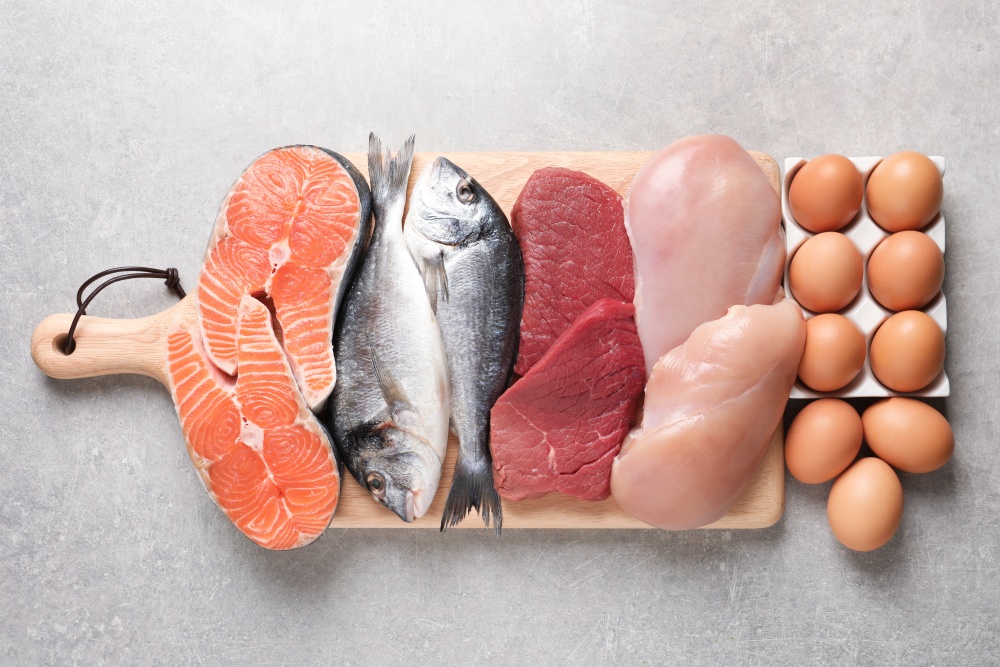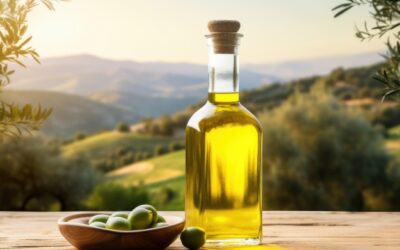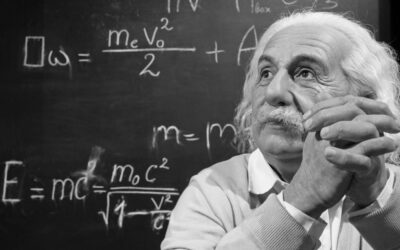Protein, often referred to as the “building blocks of life” is arguably the most critical macronutrient for brain health and repair and disease prevention as we age. One of three macronutrients found in food the body is primarily composed of protein (second only to water).
Proteins are essential for the growth, repair, and maintenance of tissues in the body (muscles and bone integrity), and they also play a role in many other bodily functions, such as enzyme production, hormone regulation, and immune system function.
All of that said, in this article, you will learn the critical role of protein in the body, the different types and implications on brain health, and how to ensure you are getting adequate protein in your diet to maintain brain health and prevent disability as you age.
Protein Metabolism
The body has a complex system for regulating the production and breakdown of proteins. This process is called protein metabolism.
Protein Catabolism
Protein catabolism is the process of breaking down the protein in food into amino acids that are then absorbed into the bloods stream.
Protein Anabolism
Protein anabolism is the processed of taking the amino acids and converting them into functional proteins.
Amino Acids
Amino acids are the building blocks of proteins. There are 20 different amino acids that the body needs to function properly, and they can be divided into two categories: essential and non-essential. Essential amino acids cannot be produced by the body and must be obtained through the diet, while non-essential amino acids can be produced by the body.
There are 9 amino acids that cannot be produced by the body and must be consumed through food. These include
- Valine
- Isoleucine
- Leucine
- Methionine
- Phenylalanine
- Tryptophan
- Threonine
- Histidine
- Lysine
What is the function of amino acids in the body?
- Tissue growth and repair
- Enzymes used for bodily functions (digestion, energy production, blood clotting, and muscle contraction)
- Act as hormones: chemical messengers that allow cells to communicate with one another
Protein Deficiency
It is important to note that if one essential amino acid is not available, protein synthesis can’t occur. With that said, protein deficiency (hypoproteinemia) has been linked to:
- Muscle loss
- Slowed growth
- Weakened immune system
- Weakened lungs and heart
What is a complete protein?
Foods that contain all of the essential amino acids are called complete proteins. These foods include:
- Beef
- Poultry
- Fish
- Eggs
- Dairy
- Soy
- Quinoa
- Buckwheat
Do amino acid supplements work?
There is little evidence that amino acid supplements are effective in protein synthesis in the body
Can you eat too much protein?
Consuming too much protein can also have negative effects on the body. Excess protein is converted into fat and stored in the body, which can lead to weight gain. It can also put a strain on the kidneys, which are responsible for filtering out waste products from the body.
Plant versus Animal Protein
Plant proteins and animal proteins differ in several ways, including their amino acid profiles, digestibility, and nutrient content. It is important to note that plant proteins do not contain all 9 essential amino acids.
Amino acid profiles
Animal proteins, such as those found in meat, eggs, and dairy products, are considered “complete” proteins because they contain all of the essential amino acids that the body needs. Plant proteins, on the other hand, are often considered “incomplete” because they may be lacking in one or more essential amino acids.
Digestibility
Animal proteins are generally more easily digested and absorbed by the body than plant proteins. This is because animal proteins are more similar in structure to human proteins, making them easier for the body to break down and use. Plant proteins, on the other hand, may contain compounds that interfere with digestion and absorption, such as phytates and fiber.
Nutrient content
Animal proteins are often higher in certain nutrients, such as vitamin B12, iron, and zinc, than plant proteins. However, plant proteins are often higher in other nutrients, such as fiber, antioxidants, and phytochemicals.
With all that said, plant-based diets require a deep understanding of how to combine plant proteins to ensure the body is getting all 9 essential amino acids to make it a complete protein. For example, beans are NOT a complete protein and must be combined with rice.
Articles you may be interested in:
Benefits of Olive Oil and How To Use It in the Kitchen
Olive oil consumption is steadily increasing, and it’s easy to see why. It’s rich in antioxidants and omega-3s that keep your body in peak health. The oil is particularly beneficial in its least processed form: cold pressed extra virgin olive oil. The widespread...
Drink Your Way To Good Health With BEAM’s Super Greens
Finding it hard to meet your body’s nutritional needs? You’re not alone. According to the Dietary Reference Intakes, a staggering 92% of Americans suffer from at least one vitamin or mineral deficiency. Deficiencies for most nutrition indicators could be as high as...
You might be beyond help…
"If you're not willing to learn, no one can help you. If you're determined to learn, no one can stop you." - Zig Ziglar Spoiler alert, you and I don't have it all figured out. Yup. As much as I hate to admit it, there are things I don't know. And if I am being really...
Einstein was correct…..
“There are only two ways to live your life. One is as though nothing is a miracle. The other is as though everything is a miracle.”― Albert Einstein If you are reading this, congratulations. This means you have eyes that can read, and a brain that has the ability to...
5 Grounding Mats for Health Enthusiasts
A growing body of research is showing that grounding—the act of allowing the feet to come into direct contact with the Earth—offers health benefits. For those of us who are pressed for time, live in concrete jungles, and find it difficult to visit natural...
Grounding Mats: A Groundbreaking Way To Embrace Good Health
If you’ve ever walked barefoot on the earth, you might have felt recharged and reinvigorated. This sensation isn’t a mere coincidence. Instead, the positive effects we feel when we let our feet touch the Earth’s natural surface—an activity called grounding or...
Truth V Useful
"The more in harmony with yourself you are, the more joyful you are and the more faithful you are. Faith is not to disconnect you from reality - it connects you to reality". Paulo Coelho Faith is believing in something you can’t see. Of course, this is true for those...
What Can Blue Zone Residents Teach Us About Life, Health, and Longevity?
Today, we have more scientists, doctors, and nurses. There are also larger investments in healthcare and wellness, more experimental treatments, and more research papers than ever. And yet our world remains riddled with disease and health conditions. Consider that in...
Start Today……
Don't be afraid to give your best to what seemingly are small jobs. Every time you conquer one it makes you that much stronger. If you do the little jobs well, the big ones will tend to take care of themselves. - Dale Carnegie “Thanks, but what else can I do”. Yes,...
The Miracle of Faith: How It Can Help You Live Longer
“Religion” gets criticized and mocked, but nobody (not even science) can deny it can be good for you. For starters, a study of more than 1,500 newspaper obituaries from across the U.S. shows it can help you live 9.45 years longer than non-spiritual folks. But this...











